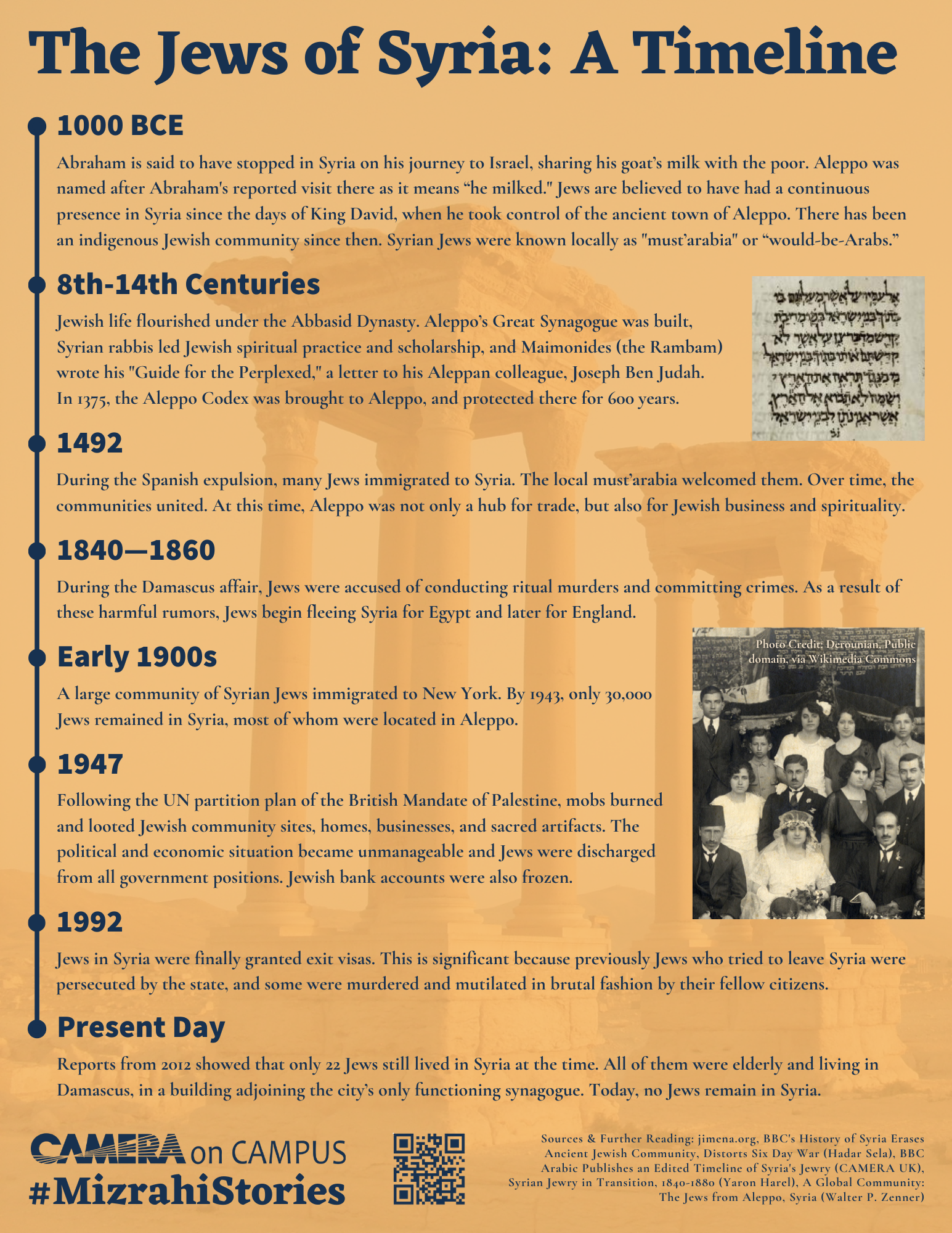The Jews of Syria
Because of the proximity of Syria and Israel, there was extensive contact between the two lands. Damascus is mentioned in the Bible numerous times and is thought to have been controlled by King David at one point. Later, Damascus and Aleppo were trade centers that contained large Jewish communities for centuries. Today, the major split among Syrian Jews is based on which city they originate from. Halabi Jews have roots in Aleppo, while Shami Jews trace their origins to Damascus.
Initially, the Jews that lived in Syria were predominantly Mizrahi. But after the Spanish expulsion of Sephardic Jews, many decided to settle in Syria because of the relatively tolerant atmosphere. The pre-existing Syrian Jews welcomed them, but the communities initially developed separately.
Syrian Jews were treated relatively well and achieved prestigious societal positions during the Ottoman Empire. Aleppo became a significant hub for business, trade, Jewish life, and spirituality. This slowly began to unravel in the 19th century. Antisemitism increased as accusations against Syrian Jews of ritualistic murders spread, which motivated many to flee the country. In 1946, Syria gained independence from France, and conditions for Jews worsened.
The Syrian government barred the Jews from making aliyah to the Yishuv. They also banned Hebrew from being taught in Jewish schools. Tensions became even worse after the 1947 Partition Plan. After Israel’s War of Independence, repression against the Jewish community worsened, and many fled to Israel. By 1964, only 5,000 out of the original 55,000 Syrian Jews remained. The Jewish community is heavily repressed and cannot travel freely outside of Syria. Syrian Jews who wanted to escape face certain death if they are caught.
In 1974 four Jewish girls were raped, murdered, and mutilated before being buried in a cave for attempting to flee to Israel. Their bodies were discovered along with that of two jewish boys who had tried to escape earlier.
In the early 1990s, after pressure from the United States, the Syrian government eased restrictions on the Jewish community, and in 1992, 4,000 Jews were granted exit visas.
There are zero Jews in the entirety of Syria. In Aleppo, a city that used to have thousands of Jews, only old buildings remain of the once-thriving Jewish community.
Today, most Syrian Jews live in Israel or America. In particular, Brooklyn is known for having a large Syrian Jewish population; one of its main synagogues, “Shaare Zion,” is among the largest Orthodox congregations in America. However, the Syrian Jewish community is also famous for banning conversion and prohibiting Syrian Jews from marrying converts in fear of growing assimilation.
.png?u=https%3A%2F%2Fimages.ctfassets.net%2F02dfoawcqsio%2F7DA8F9Fzo8QpMjetqEWGnC%2Fb5ee814bb9463f97b189946dd64d7cd7%2FFront__1_.png)
.png?u=https%3A%2F%2Fimages.ctfassets.net%2F02dfoawcqsio%2F5jhuKjWMgYFKY49pGRuYjY%2F8e929d1c9b4587bf2f5febdc105ed7e2%2FBack__1_.png)

.png?u=https%3A%2F%2Fimages.ctfassets.net%2F02dfoawcqsio%2F3TZlujgLXnn0TXLSawfetA%2F4efb6be7e5d085a00e5590b8e0709978%2FHebrew_Mizrahi_Campaign_-_Syria_Infographic__1_.png)